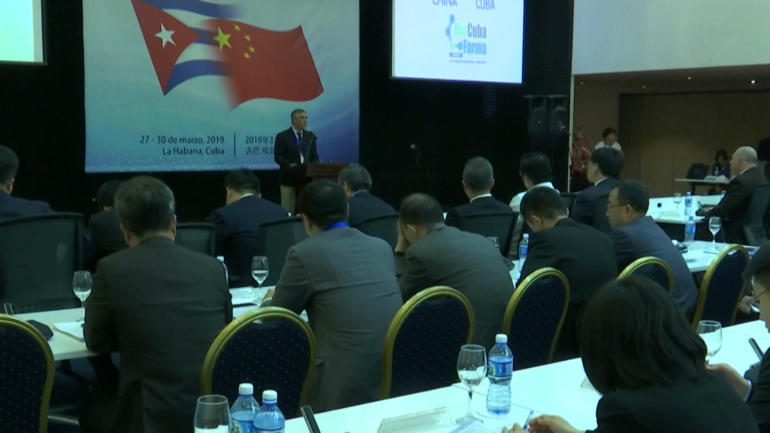China is one of Cuba’s largest trading partners. And, their bilateral trade relations have been growing over the years to include more sharing of modern technologies.
Luis Chirino reports on one firm, which is hoping to expand its cutting edge technology in China.
CGTN’s Luis Chirino reports.
China is Cuba’s major trading partner in the world, and for years, the Chinese market has been familiar with Cuban traditional products such as premium cigars, selected rums, sugar and metals like nickel.
But, the development of the Cuban biotech industry has made it possible to also export edge-cutting technology to China, such as cancer vaccines, which have been successfully administered on the island’s hospitals.
This exchange is a priority for the Cuban pharmaceutical conglomerate BioCubaFarma.
“We have proven our willingness and capacity to transfer technology to China, in this sector BioCubaFarma has made 10 technology transfers to China and has set up three joint ventures,” BioCubaFarma Vice-President Mayda Mauri said.
The implementation of the new trade projects is part of an accord reached and followed up by regular meetings of the Cuba-China Joint Working Group on Biotechnology.
“We are negotiating new ventures, we have several joint labs in the area of neurosciences and we want to set up a biotechnology research and development center in China,” BioCubaFarma President Eduardo Martinez said.
During the most recent joint working session held this year in Havana Chinese officials and entrepreneurs in the sector toured Cuban facilities of commercial interest for both China and Cuba.
However, Cuba looks forward to increasing and diversifying its overall exports to China, which in 2018 reached close to $500 million, while its imports from China surpassed $2 billion that same year, according to official Cuban statistics.
Along with the need to further increase trade with China and with it, improve bilateral commercial balance, the island is willing to contribute to the Chinese Belt and Road Initiative, aimed at driving global growth through increased trade.
 CGTN America
CGTN America

